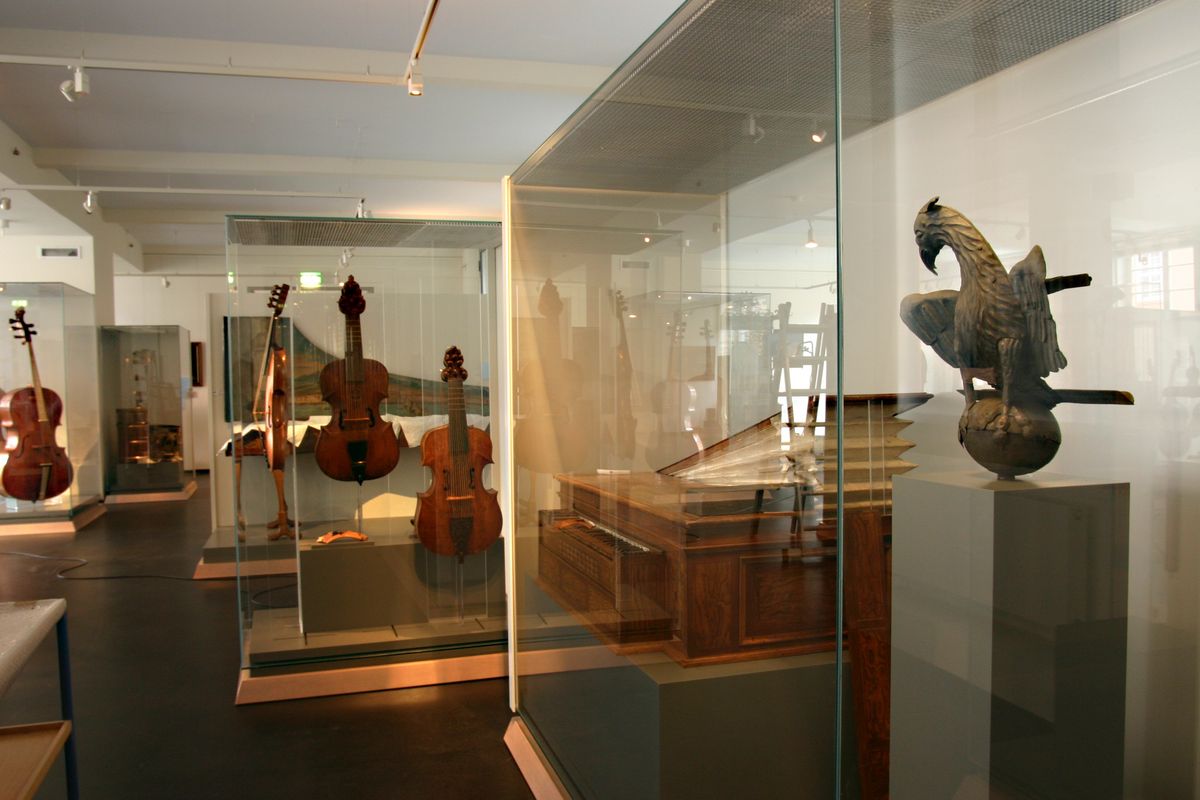Following the acquisition of the Heyer collection, in 1926 Leipzig University opened its Museum of Musical Instruments in – and for – Leipzig, the city of music. Nonetheless, its collections of pieces can be traced back to bourgeois collections of the Gründerzeit. The current holdings comprise some 9000 musical instruments, historical recording media and special collections.
Leipzig University’s Museum of Musical Instruments brings together the holdings from the nineteenth and early twentieth centuries of major early collectors from across Europe, such as Wilhelm Heyer, Paul de Wit, Wilhelm Rück, Alessandro Kraus, Rudolph Ibach and Christian Hammer. The collection contains a variety of unique pieces as well as typical models from European music culture from the early modern period and the modern age. After some of the artefacts were lost during the Second World War, a conscious effort was made in the GDR to add to the collection with “saxonica” and “asiatica”, automatons, and historical recording media. More recently, important research collections have been acquired, and extensive funds raised for basic research and digitisation, as part of the digitisation strategy adopted by the Museum of Musical Instruments.
Within the Leipzig Centre for Musicology, the Museum of Musical Instruments sees itself as a knowledge portal for academic organology. Its university teaching is as research-based as its museum transfer. Its aim is to embed all objects and collections in transdisciplinary virtual knowledge contexts.
Opening hours
Tuesday to Saturday
10am–6pm
Public tours take place every Sunday at 2.30pm. Please register well in advance for guided tours and children’s events.































































